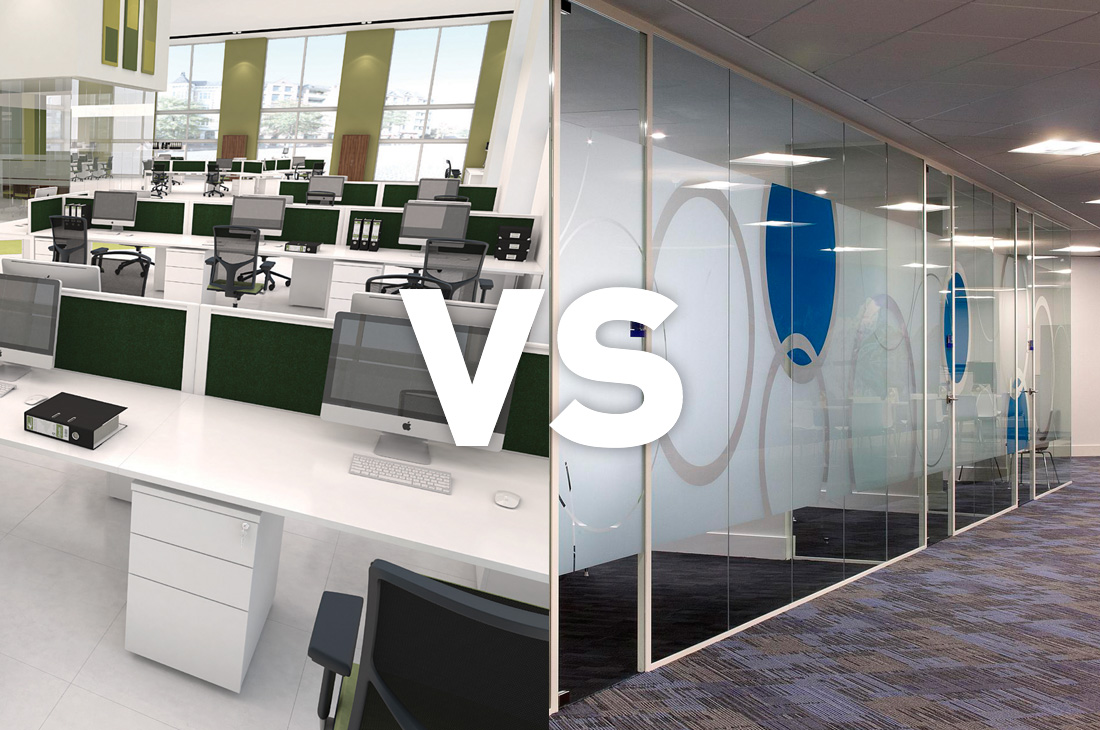A recent discussion reminded us of a report in The Telegraph a few years back which claimed that workers are less satisfied in open plan offices. The report stated that that an extensive study of people in offices in the US, Australia, Canada and Finland had shown that open plan offices do not boost teamwork or interaction among colleagues. While this sounds pretty conclusive, in our experience there’s much more to the matter than the attention-grabbing headlines let on!
Perhaps the most important consideration is that key aspects of the study show that a significant number of people did not express dissatisfaction with features of open-plan working.
For example, the report states that ‘over half’ of people were unhappy with the lack of sound privacy. The precise figure is not mentioned, but the language suggests 51–60% (any more, then ‘two thirds’ would be the term used). This means that potentially around 40-49% of people were happy (or at least not unhappy) with an open-plan set up. Business owners – or office interiors companies – grabbing hold of the headlines and making sweeping changes therefore risk throwing baby out with the open-plan bath water.
Consider the context
The report also states that people in enclosed or private offices were the most satisfied with their work space, while those in open-plan spaces were the least satisfied. But this masks the social and cultural factors that may have been at play in the businesses covered by the study.
For example, if you give five of your staff a brand new Ford Focus, they are likely to think it a generous gift and be very happy. But if you then give a sixth person a brand new BMW 3-series, the other five will feel significantly less satisfied with their end of the deal.
So, people who are assigned private offices adjacent to open-plan space may feel satisfied due to the comparative importance bestowed on them, while their colleagues in the open-plan area may not be so happy. But the solution is not as simple as the study might suggest, as people working in all-private offices are likely to feel no more nor less satisfied than those working in an all open-plan arrangement.
Our more open-minded approach to office design
The points mentioned above are really just the tip of the iceberg. At Procol, we do not automatically recommend one type of office set up over another. Our solutions vary from one business to the next, but in many cases we find that a flexible approach which gives people shared access to open-plan, collaborative and private spaces as necessary can often achieve best of all worlds.
To determine what is best for your business and your people, we consider a whole gamut of factors including (but not limited to):
- Available space and the number of people to be accommodated, both today and in the future
- Function: the nature of the work taking place, and what might best enable that to be performed most productively)
- Prevailing culture and preferences: (for example, in two business, each with an open-plan office, one workforce may express a strong preference to maintain the status quo, while the other may feel more motivated by a change)
- Legislation: ensuring that all current and known-forthcoming laws and directives are met
- Budget and operating costs: including power, lighting, heating and ventilation – and the cost of the space itself
- Trends and studies: including the one referred to here, but considered objectively and in the proper context
Ultimately, Procol’s open-minded approach means that our clients can be assured of a professional office environment that works for them, not simply a set-up shaped by a hard-hitting headline.


